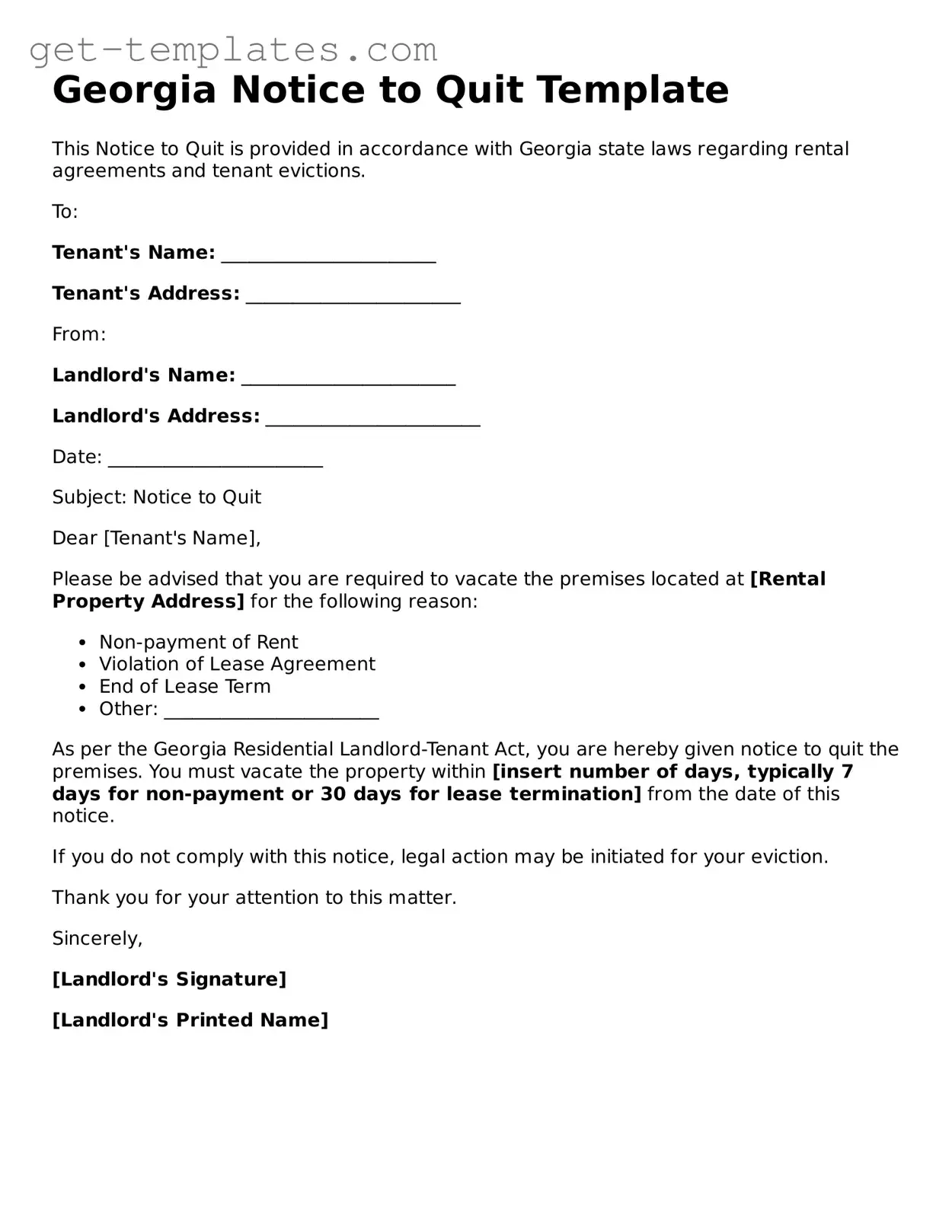Attorney-Approved Notice to Quit Document for Georgia
The Georgia Notice to Quit form is a legal document used by landlords to formally request that tenants vacate a rental property. This notice serves as a preliminary step in the eviction process, providing tenants with information about their lease termination. Understanding this form is essential for both landlords and tenants to navigate their rights and responsibilities effectively.
Get Document Online

Attorney-Approved Notice to Quit Document for Georgia
Get Document Online
You’re halfway through — finish the form
Finish Notice to Quit online — edit, save, download made easy.
Get Document Online
or
⇓ PDF Form
